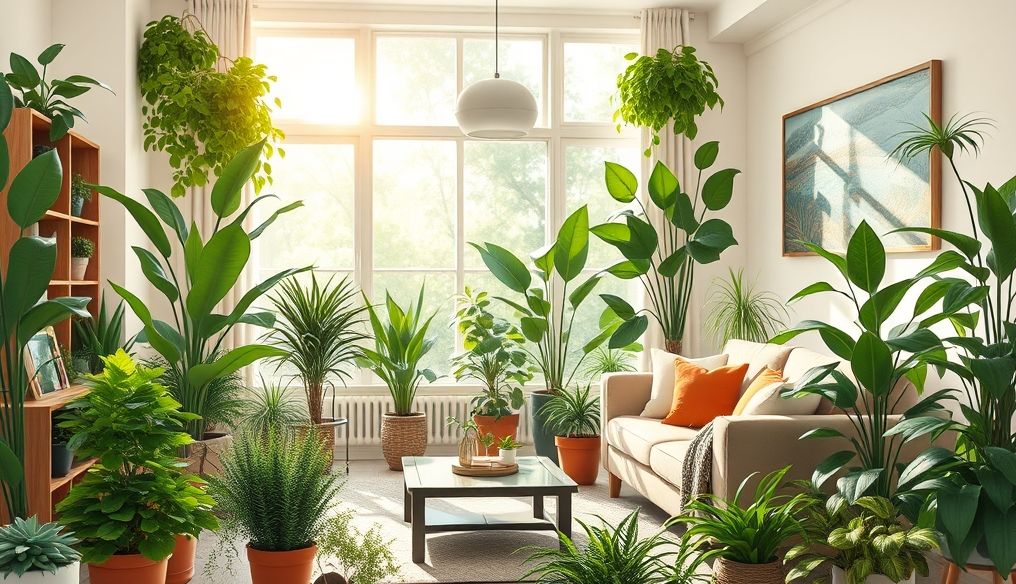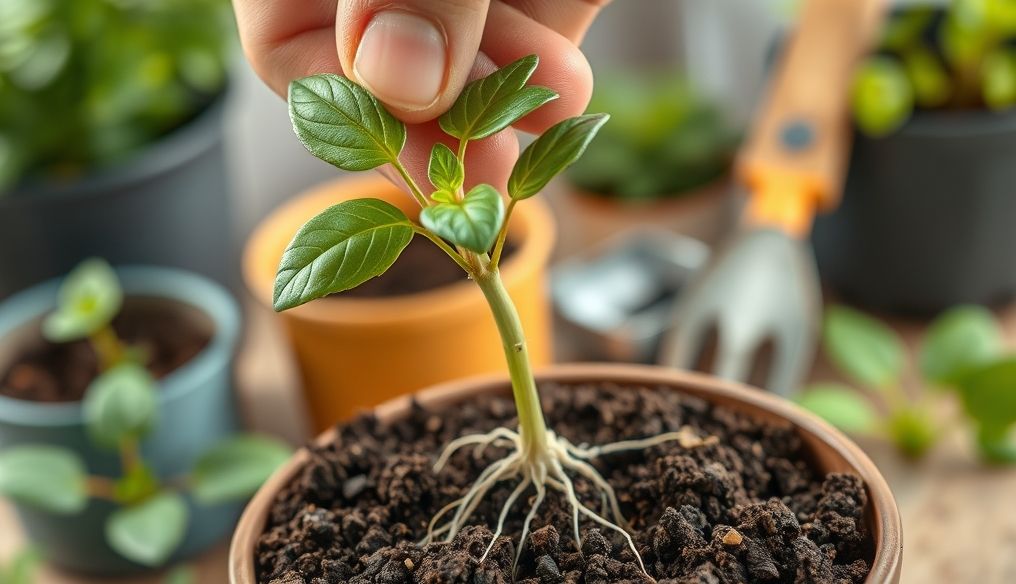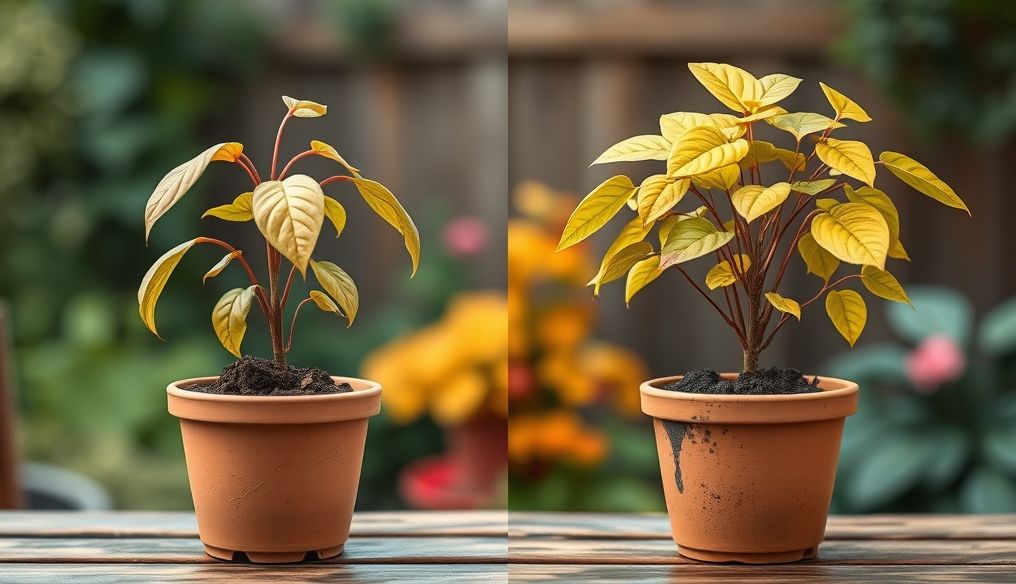Introduction: The Relationship Between Plants and Humans
Plants have always been an integral part of human life, providing us with food, medicine, and shelter. But in addition to these material benefits, plants also play an important role in our mental health. Since ancient times, nature has been associated with relaxation, and people have turned to it to relieve stress and anxiety.
In modern times, with the increasing pace of life and work pressures, it has become difficult for many to spend enough time in nature. This is where houseplants come in as an effective alternative, as they can bring a piece of nature into our homes and help us improve our mental health and well-being.
Chapter 1: The Impact of Plants on Reducing Stress and Anxiety
Numerous studies have shown that the presence of plants in our surroundings can reduce stress and anxiety levels. In one study, researchers found that students who studied in a room full of plants had lower levels of cortisol (the stress hormone) compared to students who studied in a room without plants.
How do plants work to reduce stress?
- Soothing Vision: The green color of plants has a calming effect on the eye and mind.
- Improving Air Quality: Plants absorb carbon dioxide and release oxygen, which improves indoor air quality and helps with relaxation.
- Providing a Sense of Calm: Caring for plants can be a relaxing and enjoyable activity that helps to distract from problems and pressures.
Chapter 2: Plants and Their Role in Improving Mood
In addition to reducing stress and anxiety, plants can also improve mood and promote feelings of happiness. In another study, researchers found that people who work in offices full of plants were happier and more productive than people who work in offices without plants.
How do plants contribute to improving mood?
- Releasing Beneficial Chemicals: Some plants release chemicals into the air that can improve mood and promote feelings of happiness.
- Increasing the Feeling of Connection to Nature: Having plants in the home can increase the feeling of connection to nature, which in turn is associated with improved mental health.
- Providing a Sense of Accomplishment: Seeing plants grow and thrive can give us a sense of accomplishment and pride, which in turn promotes feelings of happiness.
Chapter 3: Enhancing Focus and Attention
Research suggests that plants can play a role in enhancing focus and attention, especially in indoor environments. Having plants in workplaces or study areas can reduce distractions and improve the ability to concentrate on tasks.
How Plants Work to Enhance Focus:
- Improving Air Quality: By absorbing pollutants and releasing oxygen, plants create a healthier environment that supports cognitive functions.
- Reducing Noise: Some plants can help absorb noise, reducing distractions in the surrounding environment.
- Providing a Visual Focal Point: Looking at plants can provide eye relief and help refresh attention.
Chapter 4: Plants as a Natural Remedy for Depression
Although not a substitute for medical treatment, plants can be a valuable addition to a depression treatment plan. Caring for them can be a therapeutic activity that helps improve mood and alleviate symptoms.
How do plants help alleviate symptoms of depression?
- Providing Purpose and Structure: Caring for plants provides a daily routine and purpose, which can be helpful for people suffering from depression.
- Increasing Physical Activity: Even simple tasks like watering plants can increase physical activity and improve mood.
- Promoting a Sense of Connection: Caring for another living being can foster a sense of connection and reduce feelings of loneliness.
Chapter 5: Types of Houseplants Most Beneficial for Mental Health
There are many types of houseplants that can be beneficial for mental health. Here are some examples:
- Air-Purifying Plants: Such as Peace Lily, Spider Plant, and Snake Plant. These plants help purify the air of pollutants and improve its quality.
- Aromatic Plants: Such as Lavender, Mint, and Jasmine. These plants release soothing scents that can reduce stress and anxiety.
- Easy-Care Plants: Such as Cactus and Succulents. These plants do not require much care, making them a good choice for busy people.
Chapter 6: Tips for Choosing the Right Plants for Your Home
When choosing the right plants for your home, there are a few things to consider:
- Your Home Space: Choose plants that fit the size of your home.
- Amount of Light: Choose plants that match the amount of light your home receives.
- Level of Care: Choose plants that match the level of care you can provide for them.
- Your Personal Preferences: Choose plants that you love and find enjoyable.
Chapter 7: Integrating Plants into Your Home Decor in a Healthy Way
To maximize the psychological benefits of plants, it is important to integrate them into your home decor in a healthy and appropriate way:
- Distribute Plants Throughout the Home: Do not concentrate plants in one area only. Distribute them throughout the home for maximum benefit.
- Use Attractive Flower Pots: Choose flower pots that match your home decor and add an aesthetic touch.
- Take Care of Plant Health: Make sure the plants receive enough light, water, and nutrition.
Chapter 8: Scientific Studies and Research Supporting the Psychological Benefits of Plants
There are a large number of scientific studies and research that support the psychological benefits of plants. These studies can be consulted for more detailed information on this topic. For example:
- A study published in the Journal of Environmental Psychology found that the presence of plants in offices increases productivity and reduces stress.
- A study published in HortScience found that caring for plants can reduce symptoms of depression and anxiety.
Conclusion: Invest in Your Mental Health Through Plants
In conclusion, it can be said that houseplants have many benefits for our mental health and well-being. They help reduce stress and anxiety, improve mood, enhance focus and attention, and can be a valuable addition to a depression treatment plan. So, invest in your mental health by adding some plants to your home.
Important Note: This article provides general information and does not replace consulting a doctor or mental health professional. If you are experiencing mental health problems, please consult a specialist for proper diagnosis and treatment.




